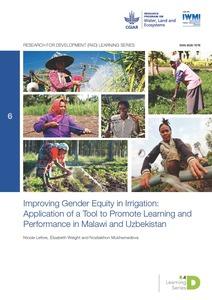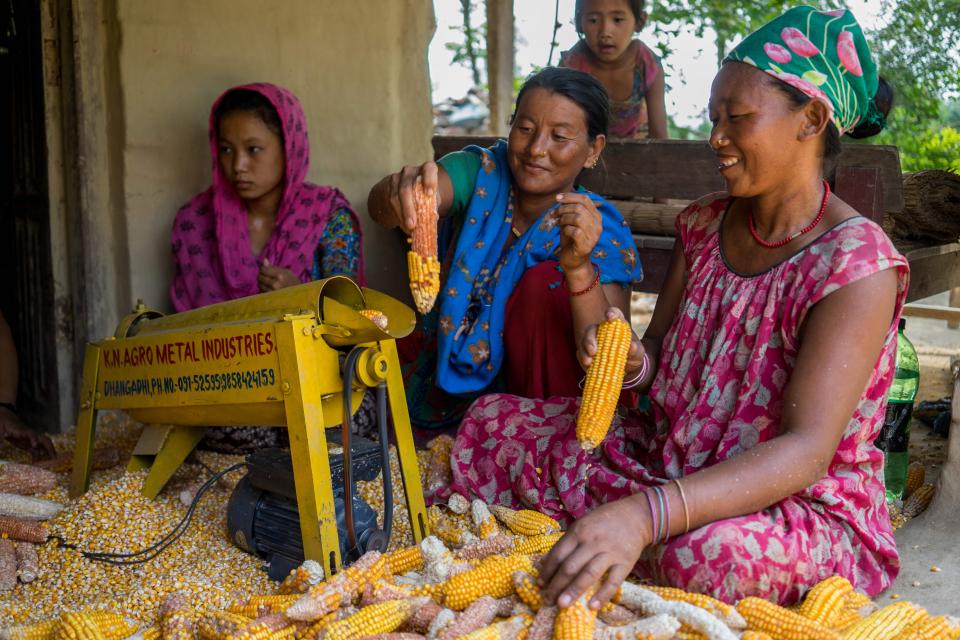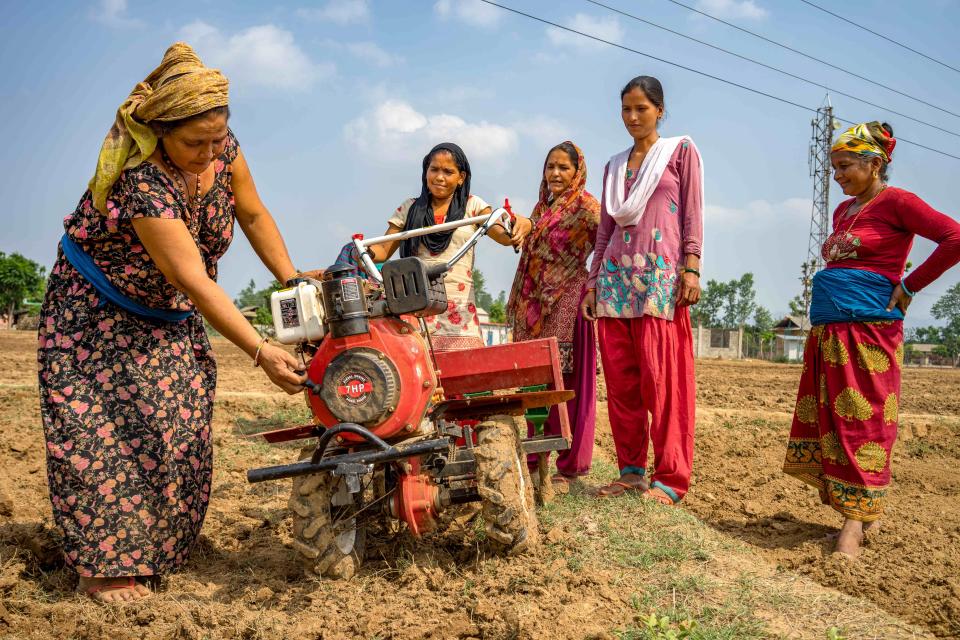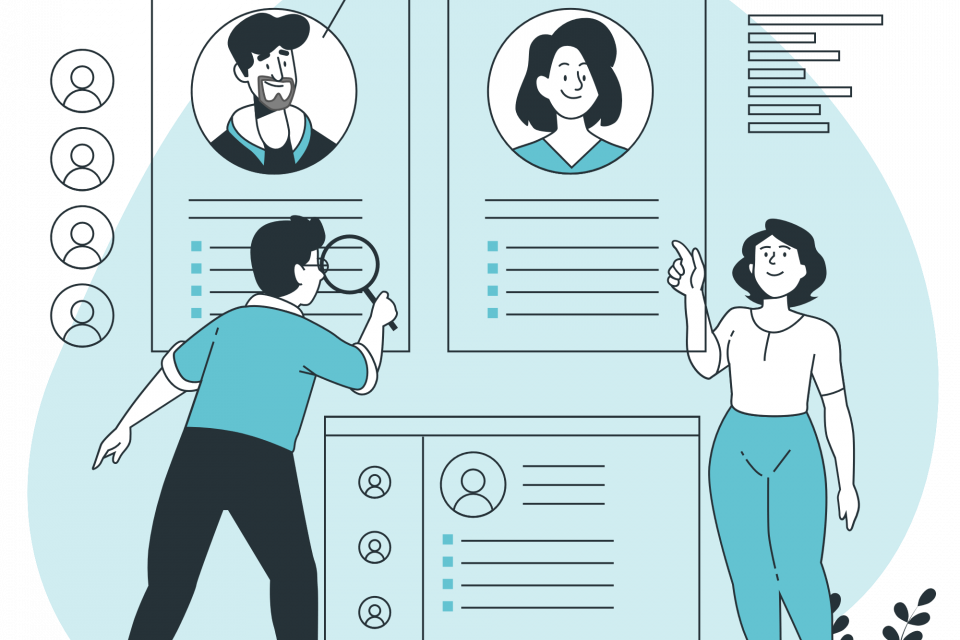Gender in Irrigation Learning and Improvement Tool (GILIT)
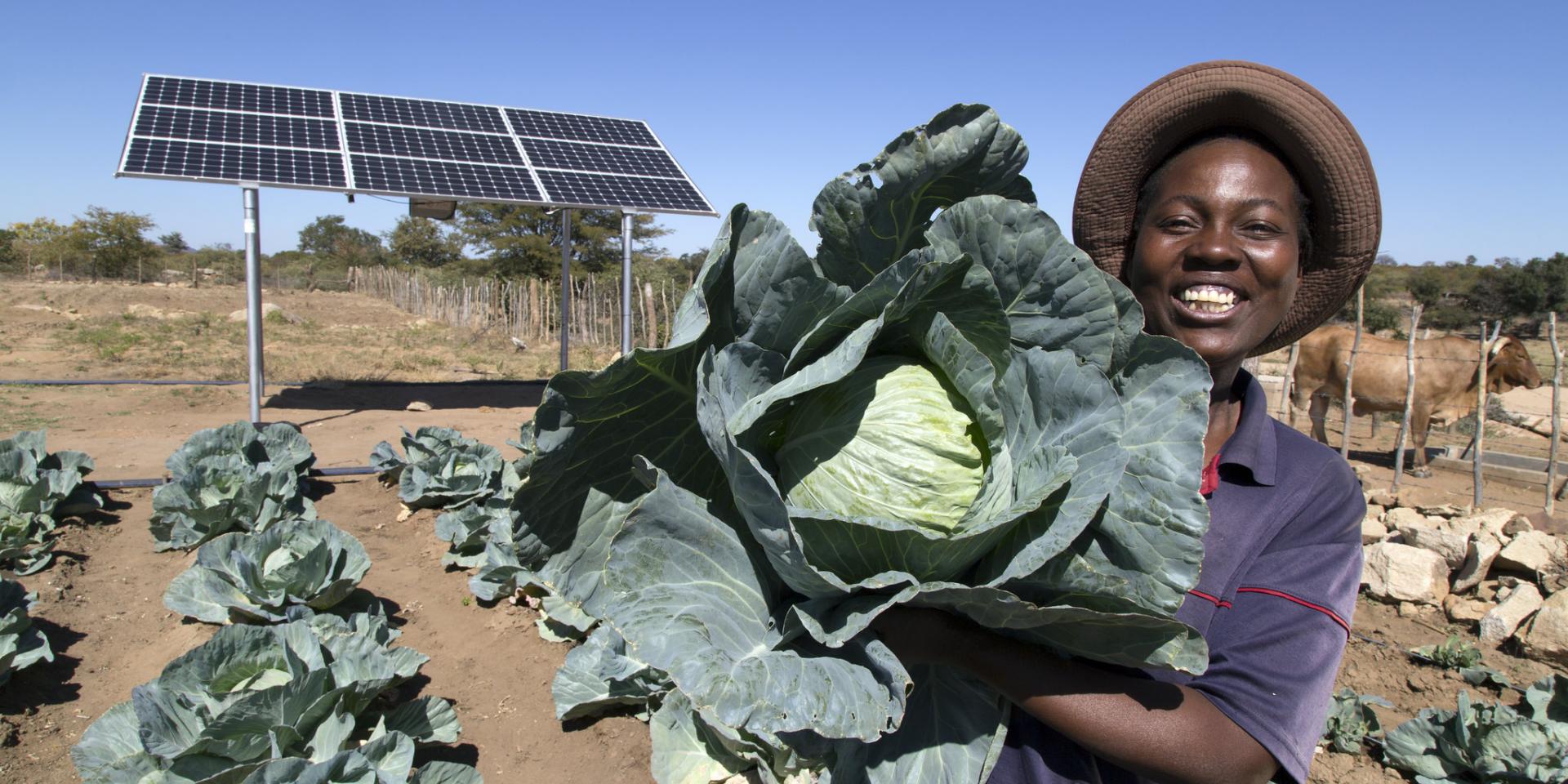 Photo: David Brazier/IWMI.
Photo: David Brazier/IWMI.
The GILIT evaluates the gender equity of formal irrigation schemes and projects, through people’s experiences, to find areas of policy and practice that are successful or need adjustment.
Why is this tool important?
The Gender in Irrigation Learning and Improvement Tool (GILIT) identifies areas of policy and practice in formal irrigation projects that have been successful or need adjustment to promote gender equity.
It is essential that formal irrigation schemes and projects avoid discriminating against or discouraging women. The tool can help managers to make sure their governance and service are appropriately supportive of women’s needs.
The tool facilitates learning and supports equitable standards by collecting feedback and helping with ideas for specific actions to redress gender inequities.
Who is the tool for?
Examples of people who might use the tool:
- irrigation scheme/project managers – to support discussion, reflection and evaluation of their projects
- donors – to plan, adjust, monitor and improve projects
- scheme stakeholders – to monitor and hold projects accountable to legislation and policy
- project evaluators – to create a baseline for, and measure, the performance of projects
- researchers – to compare projects though they may be quite different.
How can I use the tool?
You use the tool to collect people’s on-ground experiences, generating a series of indicators clustered around three critical themes, with supporting discussion questions and an adaptable scoring system.
It also includes:
- interviewer instructions
- interview information sheet
- guidance on how to understand scheme resources, membership, decision-making, benefits
- score sheet
- recommended planned actions to improve.
When and how was it developed?
This tool and manual were prepared in 2017 by the International Water Management Institute (IWMI), in collaboration with the Sustainably Increasing Land and Water Productivity Flagship of the CGIAR Research Program on Water, Land and Ecosystems (WLE).
Where can I learn more?
The tool is free to use, and you can learn more via WLE or the publications below.
Publications
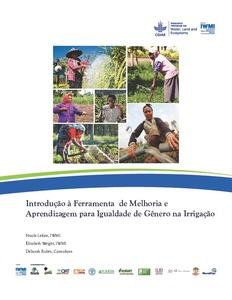
Gender in irrigation learning and improvement tool
